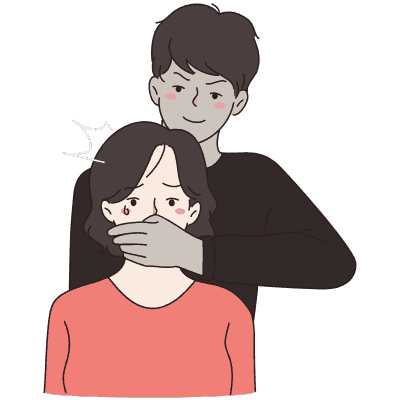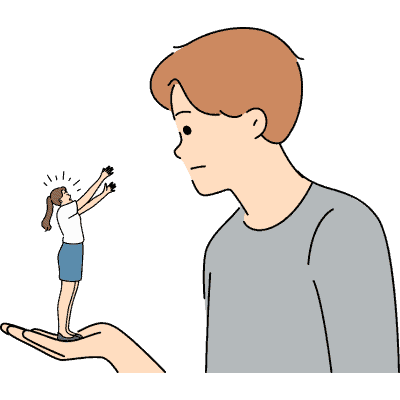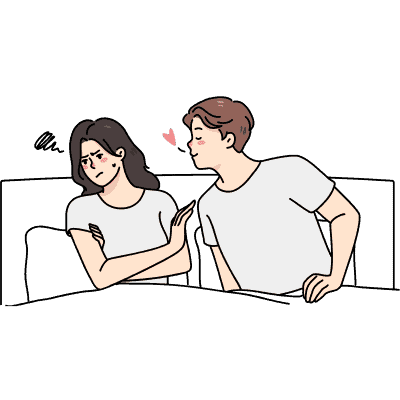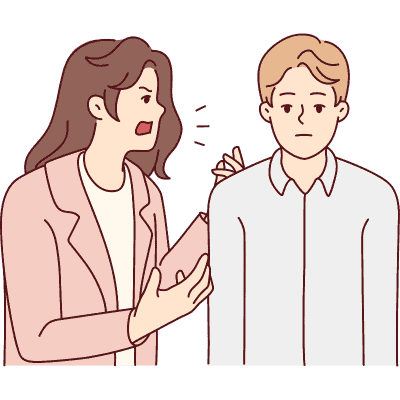We are never going to run out of dating trends created by Gen Z’ers, and that’s fine, we have accepted that. Every day, another one pops up, and we are actually impressed with how in tune the younger generations are with the more nuanced and psychological aspects of dating. Props to them?
Today, we are going to find out all about “vulturing.” What it is, who is doing it, if it’s good or bad (spoiler alert: it ain’t good), and how you can spot it.
This particular dating trend morphs the entire concept of support and friendship into a manipulative and strategic game of opportunism.
Vulturing occurs when a person who is posing as a “supportive” friend is waiting in the wings for someone’s romantic relationship to sour or end, only to deviously swoop in with their own romantic goals. Let’s take a gander at the complexities of vulturing so you can see the signs, know what the psychological underpinnings are, and how exactly it impacts relationships, shall we?

What is Vulturing?
If you don’t know what a vulture is, allow us to enlighten you. According to the Oxford Dictionary, which lists two definitions, a vulture is “a large bird of prey with the head and neck more or less bare of feathers, feeding chiefly on carrion and reputed to gather with others in anticipation of the death of a sick or injured animal or person” and “a contemptible person who preys on or exploits others.”
Both can apply to this trend, although the second one is far more apt.
At its core, vulturing is a devious act of emotional vampirism and opportunism. It involves a person (the ‘vulture’) circling close to someone (the ‘prey’) who is in a relationship under the guise of being a friend.
The vulture provides emotional support, a sounding board for its prey, and a shoulder to cry on, all while harboring ulterior motives—all in an effort to pounce when things go south in the prey’s romantic relationship. And as soon as any kind of cracks appear in the prey’s partnership, the vulture makes their move, all in the hopes of transitioning from friend to romantic partner—which was their motive all along.

Signs of Vulturing
Seeing vulturing for what it is can be hard, but if you know what to look for, you’ll be able to see the vultures for what they really are. We aren’t going to lie, it can be tricky, as it often masquerades as genuine care and support. Honestly, the vultures may not even be consciously aware that they are guilty of this emotional manipulation.
But the big red flags you should be on big bird watch for include the following:
- Over-Interest in Relationship Troubles: A vulture will show an unusual interest in the details of their friend’s relationship problems—they will ask lots of questions—too many questions—under the guise of “caring.”
- Availability: Vultures make themselves excessively available, day or night, and at the expense of their own commitments or personal relationships.
- Subtle Disparagement: They might subtly, or even not so subtly, put down or criticize the prey’s current partner or the relationship as a whole.
- Intimacy Building: An increase in super intimate or emotional talks, particularly on the theme of love and relationships, is a common tactic.
- Timing: Their romantic or more aggressive emotional advances coincidentally coincide with any relationship troubles or immediately after a breakup.

Psychological Underpinnings
The practice of vulturing is not only a social strategy—it is also a complicated and convoluted psychological behavior. It could stem from a fear of rejection, as approaching someone who is single and fully available comes with a higher risk of outright rejection. Instead, positioning oneself as a friend first seems to be a safer, albeit deceptive, bet when it comes to romance.
On the contrary, some people could be vulturing due to a misguided belief in the “rightful turn” theory. They may really believe that after being such a supportive friend, they deserve a chance at a romance with their prey. This belief completely overlooks and ignores the autonomy and feelings of the person they’re interested in—no one owes you anything.

Impact on Relationships
The impacts of vulturing on relationships, whether they are platonic or romantic, can be quite profound:
- Erosion of Trust: Finding out you’ve been the victim of vulturing from someone you truly thought was a friend is not only hurtful, but it can cause the complete loss of trust, not just for the vulture in question but in all future friendships and relationships. You could always be wondering if their friendship is genuine or if they are just biding their time and plotting to win your affection.
- Emotional Confusion: The prey will most likely feel manipulated and question if they have the ability to know what is genuine support and what are ulterior motives.
- Relationship Sabotage: If the vulture’s actions contribute to a relationship’s end, it can leave lasting scars and feelings of anger and betrayal.
- Friendship Loss: The prey loses what they thought was a real, supportive friendship and will be wary of new connections due to being burned by the vulture—the mistrustful feelings may never dissipate.

Flying By Vulturing
Not being a vulture takes a lot of self-awareness and principled and honorable integrity when it comes to friendships! Don’t want to be a vulture? Read on below, and if you see any behavior you are guilty of, you might be a vulture. But it’s not too late to correct the course.
- Understand Motives: First and foremost, be honest about your intentions in a friendship, especially if you have romantic feelings—if this ends the friendship, so be it.
- Respect Boundaries: Respect the boundaries of others’ romantic relationships don’t become overly involved in any drama or troubles—and don’t insert yourself into them.
- Get Consent: If romantic feelings do happen to develop after your friend’s relationship ends, talk about it openly and with respect—make sure that any advance is consensual and not just opportunistic on your part—they are likely vulnerable and could be rebounding.
- Value Your Friendships: Understanding the value of real friendship and avoiding compromising it for potential romantic gain should be common sense, but here we are.
Final Thoughts
Vulturing is indeed a troubling and toxic trend in dating! It exists in a space where the lines between support and romantic opportunism are blurry, and it is straight-up grimy behavior. Seeing this behavior for exactly what it is can save you from emotional pain, and not just for those who might fall prey to it—it’s also for those who may unwittingly or wittingly use this tactic.
